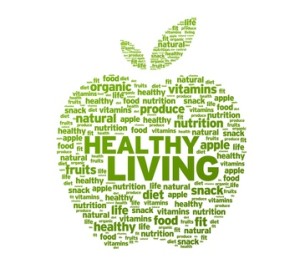 As many are aware, last week was National Eating Disorder Awareness week. Aside from clinically diagnosed eating disorders, I want to bring attention to the umbrella term of “disordered eating,” a phenomenon that has become the norm. Whether you’ve struggled with an eating disorder or not, you need to read on, because this applies to you.
As many are aware, last week was National Eating Disorder Awareness week. Aside from clinically diagnosed eating disorders, I want to bring attention to the umbrella term of “disordered eating,” a phenomenon that has become the norm. Whether you’ve struggled with an eating disorder or not, you need to read on, because this applies to you.
You’ve probably noticed that there’s a plethora of conflicting and drastically different nutritional beliefs, and even more confusion on which “one” is the “best.” Research in nutrition is a great tool; don’t get me wrong. However, it does not help us with our body image issues, emotional eating issues, restrictive behaviors, the list goes on.
No matter what your health goals are, whether you’re recovering from an eating disorder, trying to gain weight, trying to lose weight, trying to get in shape, (etc.) there’s probably a manipulation and a control of your food intake, with beliefs and behaviors to go along. What many people fail to address in their health-related goals is their relationship with food. Perhaps the most fundamental aspect of nutrition and health is not a specific nutrient or ratio of macronutrients, but our relationship with food. This relationship is our inner thoughts and beliefs about the way that we eat and fuel our bodies.
As almost all of us are socialized to believe, some foods are “good foods” and others are “bad foods.” Yes, without a doubt, there are foods that will contribute to greater health, and others that will detract from it, but no food is inherently “good” or “bad.” You can find rationale behind any nutritional notion, but you’d be hard-pressed to find the end-all be-all ideal diet for every human being. A food is not morally good or bad. It depends on who’s eating it, how much, how often, what else you eat, what your goals are, etc.
 This rejection of labeling food as “good” or “bad” is extremely fundamental in achieving a healthy relationship with food. The controversies in nutrition and health information completely pollutes our psychological wellbeing, to the point where eating becomes a rationalization of being good or being bad. So what if you choose to “be bad” at mealtime? It implies that you are bad, you did something wrong, and you should be punished, right? We might force ourselves to skip a meal the next day, or push ourselves to exercise for longer, or wallow in guilt and self-harm. That just can’t be right, that isn’t a healthy way to live. Your body cannot function properly with constant emotional turmoil.
This rejection of labeling food as “good” or “bad” is extremely fundamental in achieving a healthy relationship with food. The controversies in nutrition and health information completely pollutes our psychological wellbeing, to the point where eating becomes a rationalization of being good or being bad. So what if you choose to “be bad” at mealtime? It implies that you are bad, you did something wrong, and you should be punished, right? We might force ourselves to skip a meal the next day, or push ourselves to exercise for longer, or wallow in guilt and self-harm. That just can’t be right, that isn’t a healthy way to live. Your body cannot function properly with constant emotional turmoil.
A big determinant of overall health is mental health. You can be “weight-restored” after an eating disorder, but what about your brain and the anxieties and worries that remain? An eating disorder begins in the mind, which may need the most healing. What if you’ve never had a diagnosable eating disorder, but your brain is stuck in the “diet mindset” and disordered eating? What about the harmful inner monologues and how they detract from our health and happiness?
The first step is to let go of “dieting.” What? Yes. It is the mentality of “dieting” that sets us up to feel unsatisfied, guilty, and emotional around food, ultimately detracting from our health. Instead of looking at food in a black and white perspective of “good, bad, shouldn’t, should,” start viewing “food as fuel.” This way of thinking will guide you toward being able to eat all of the foods you enjoy in the appropriate amounts that serve your health goals. Consistent denial of the foods we want to eat sets us up for that vicious restrict-binge cycle. We are failing to find “the middle way,” where true balance is present. We can create a flexible way of eating all the foods we enjoy, while still serving our health. Read that sentence ten more times.
In making judgements about what we should eat, we must first look within ourselves. Focus less on the calories of the meal you just ate, and focus more on the way your body and mind feel afterward. Stop focusing on what that Instagram model is eating, stop focusing on what that vegan says is healthy, and start listening to your body. This is what will ultimately guide you toward optimal holistic wellbeing. Of course, research findings are important, but they should be taken with a grain of salt. Let’s reject the notion that there’s a “one size fits all” diet. We can take a piece of wisdom from every new finding without letting it control our choices. Eat with the purpose of fueling your body, be present, and put your intuition and mental health first. Whatever your health goal, simultaneously strive for a healthy relationship with your food.
__________________________________________________________________________________________








Leave A Comment